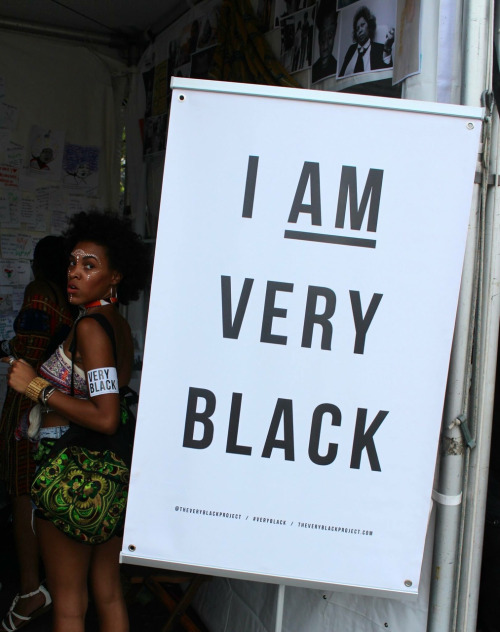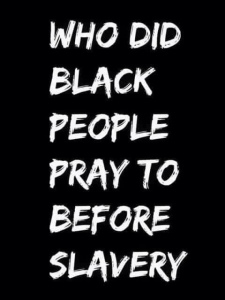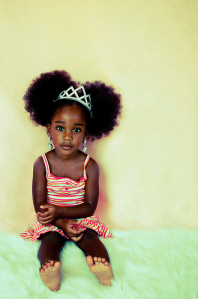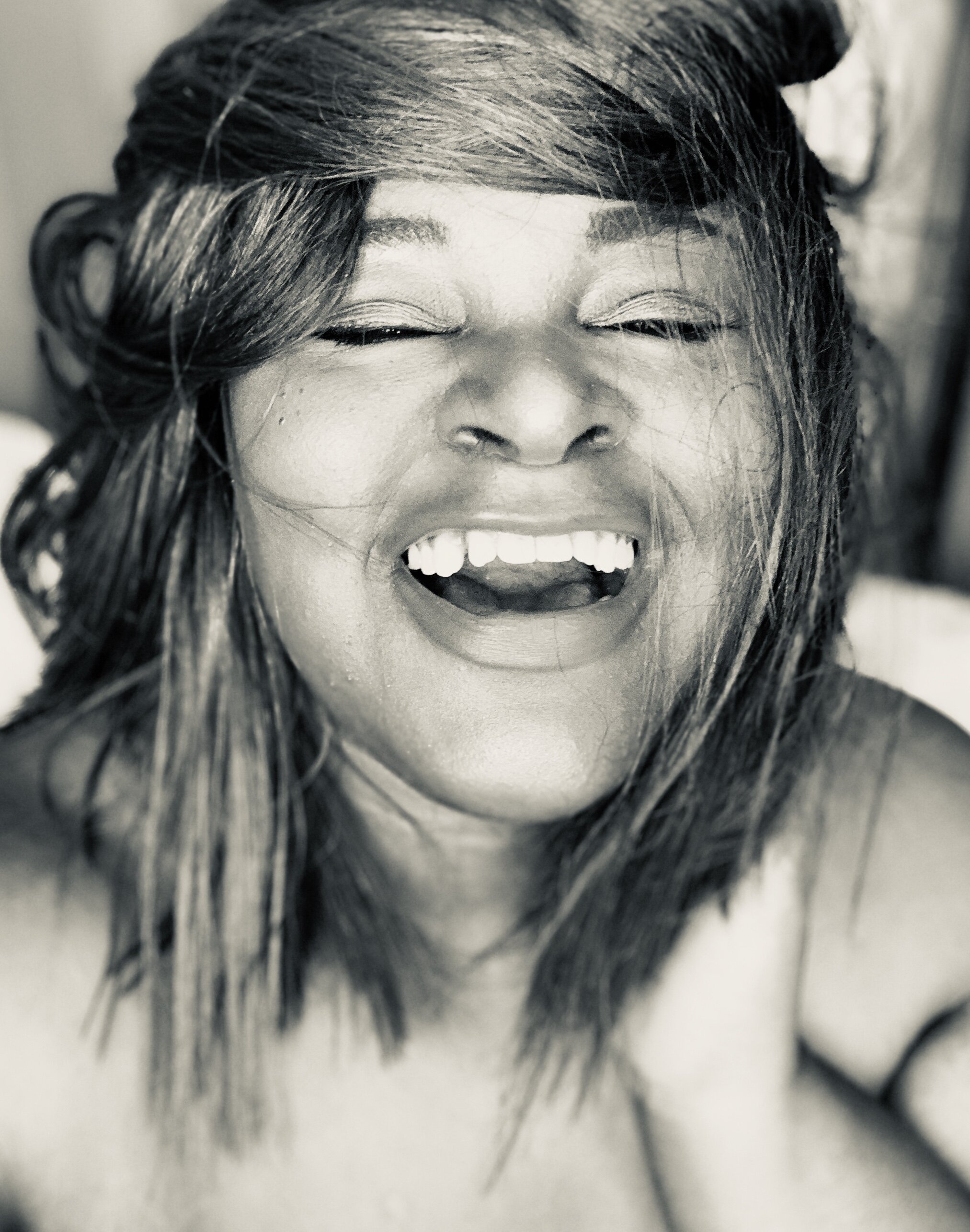Black in Academia
Before I begin, let me make clear that the experience I write about is my own. It is not meant to be an exhaustive op-ed of most, some or even a few Blacks in academia. My story is my own. And, only a person of color would have to begin such an article in such a manner.

Twice as hard, Half as much
Being from Atlanta, I am not sure I ever understood, clearly, the limitations that blackness had in this country. While it is true we have our fair share of black crime, and black poverty, we also had black success and black wealth. Black did not mean any one thing to me, it did not paint a specific picture in my mind of any one person or any type of lifestyle. As a result of both my environment and upbringing, the domains of "acceptable" black behavior were lost on me. I was not taught the twice as hard, half as much proverb which rings true to the core of most upwardly mobile black people. I was somewhat unaware that some people would not even be rooting for me to fail, but that it would never even occur to them that I could or would succeed because of the color of my skin. What a gift that ignorance has been.
Raisin in Rice My dad would say that I came into my black identity in college. Taking part in organizations like the Black Cultural Programming Committee, or NAACP on campus, or that one semester of NABJ when I still believed I would be a journalist, or wanting to pledge a historically black greek letter organization. However, I would argue that my blackness became truly salient in conjunction with the birth of my identity as an academic; when I began working on my PhD. The stress between the two identities has lead to a reorganization of many beliefs I held about both white people and black people and the realities of racism in our nation at present.
First, my noticing came at my fear of ever being angry in class. I began to question whether my deference to passivity or apathy was due to my lack of opinion or passion around a topic or an unwillingness to share my opinion or passion because of my environment. The more I asked that question, the more I realized I was silencing myself. So afraid of being trapped in the role of the angry black woman, I was "shucking and jiving" to assuage white feelings at the expense of my own. My internal struggle: the paradox of white feelings versus black lives would be one that would take the center stage for the nation four years later. However, as a nation, similarly to my own processing, it would be impossible to have a productive discussion about the conflict due to overwhelming feelings of guilt, shame, hurt, and fear. They would hold us captive in our positions unwilling to make any forward motion on the matter.
...but you're not really Black
I'd first heard the "compliment" in high school. Stripped of my racial identity because I did not fit the media contrived portrayal of a black girl and later a black woman. While the words never set well with me, it was not until being in a blindingly white academic setting in a pervasively white city that I would become outraged at the insinuation that because I was black I could not be whatever other (usually) positive thing I was, in fact, being. After getting into several arguments with white friends about blackness and the richness of black identity that they truly could not comprehend I realized that the conversations were going nowhere. I was trapped in anger, fury, over being forced to exist in a space where I felt largely misunderstood and the people around me inherently expressing that my blackness did not matter. They were taking the colorblind approach; I saw it as total blindness. If you cannot or will not see my blackness, then you cannot possibly see me.
 So for the second year of my studies, I avoided conversations of race and racism with anyone other than black people. That year was important and I do not regret it. My own immersion/emersion, though it was practically impossible to avoid symbols of whiteness, I did try to soak in as much blackness as I could find. I did research for and with black students, administration and faculty. I organized programming which helped strengthen the black community on campus with that of the black alumni network. I volunteered to mentor with a BGLO's leadership development academy. I attended community events and poetry slams, open houses, even the "ratchet" spots all in search for as much blackness as I could find because I felt like I was starving for it. It was something I almost couldn't make sense of because I had been aware of blackness my entire life. I knew black history and where I sat in it. I knew both how fortunate I was and also how far my generation had to go, and yet here I was FEELING black for the first time. Feeling the blackness that I'd only really know theoretically or in passing, never anything sustainable. People rarely believe me but I have encountered more racism in southern California than I ever did at home in the south. Sometimes well-meaning, nevertheless, racist.
So for the second year of my studies, I avoided conversations of race and racism with anyone other than black people. That year was important and I do not regret it. My own immersion/emersion, though it was practically impossible to avoid symbols of whiteness, I did try to soak in as much blackness as I could find. I did research for and with black students, administration and faculty. I organized programming which helped strengthen the black community on campus with that of the black alumni network. I volunteered to mentor with a BGLO's leadership development academy. I attended community events and poetry slams, open houses, even the "ratchet" spots all in search for as much blackness as I could find because I felt like I was starving for it. It was something I almost couldn't make sense of because I had been aware of blackness my entire life. I knew black history and where I sat in it. I knew both how fortunate I was and also how far my generation had to go, and yet here I was FEELING black for the first time. Feeling the blackness that I'd only really know theoretically or in passing, never anything sustainable. People rarely believe me but I have encountered more racism in southern California than I ever did at home in the south. Sometimes well-meaning, nevertheless, racist.
In America, American means white. Everyone else has to hyphenate In my skepticism of white culture I began to see racism woven into the fabric of everything--to be fair, that and patriarchy. The idea of professionalism; who decided that? Why is the hair that grows out of my head, as it grows out of my head, subject for discussion or debate? In handbook outlines, rarely are traditional cultural garments named as acceptable traditional attire. Bold and bright colors, prints and fabrics represented not who we were but where we had traveled. Been spectators, voyeurs to a culture that was fine...there...but not here. Though no one would outwardly express it. I remember a colleague talking to me about job interviews for a student worker position in which she described a black male candidate a bit too loud and aggressive. I cringed. I couldn't help but wonder if his skin color amplified his being or if he really was a loud and aggressive person. I began to feel hopeless. Black people don't stick together enough to successful have a thriving subculture, yet we are being exterminated and oppressed within the larger culture. The single greatest victory of slavery was the idea that white was superior. There was a wave of time in the sixties when we challenged that, but I think there's such a loss...there is no "home" to go back to, no mother tongue, no one place we know to turn to feel connected to who we are. So whiteness it is...we will call it American; the American dream, never questioning whose america because we know exactly whose it is.
If the youth are not initiated into the village, they will burn it down just to feel its warmth Trayvon Marton. Michael Brown. Ferguson. Eric Garner. Oakland. Baltimore. Sandra Bland. The list goes on and on and all while I go to class and learn about the importance of effective leadership and the dynamics of systems. Part of me resentful because no one dare talk about the current leadership or dynamics of a system black people are dying in. Part of me desperate to take in as much as I can so that I can understand what they think is true. Given an assignment to write about ethics and leadership I took the opportunity to write about being black in white spaces. I knew it wasn't my approved topic. I knew we hadn't spent one day discussing race in america in class. Still I wrote:
In isolation, it appears as if the combination of the events of Ferguson, the existence of multiple parts of my self, including those identities of Black, Scholar and higher education professional, and a pending meeting with a university AVP would be an easily solvable “ethical dilemma.” However, this is a decision that will replicate itself over and over again given my chosen career trajectory. I will always have to discern and decide just how Black to be in my spaces, especially White spaces. When the global context holds racial tension, I will always have to decide if it is appropriate to respond with my “Black self”, especially in White spaces. When I hold a position of authority, as I often do when I teach, I will have to ask myself continually and infinitely essentially how “Black” can I be right now, in this White space?
I was angry. I am still angry. I find solace in the words of James Baldwin,“To be black and conscious in America is to be in a constant state of rage." I am enraged. I feel like Bruce Banner and at any given moment I can give in to the anger and become the Hulk. I am not sure that I will ever not be angry because I don't know if my lifetime will include the shift of consciousness needed to heal this nation and come to terms with racism (institutional racism feels redundant), oppression and injustice. 
I am the hope and the dream of the slave. I rise. I rise. I rise. Despite my anger, I have begun to speak. Largely because of my education I have been able to make strides in my own understanding and conceptualization of race and racism. I've become less angry at white people and more frustrated with whiteNESS. This way of being that "we" see as normative and therefore right, specifically, more right than any other way of being without question. I've become less skeptical of individuals and increasingly more infuriated with oppressive systems choosing to believe that if people understood the hurt and pain that was caused by their own individual actions, they would certainly choose another course. I am not so naive to think that is true for all.
I have accepted the responsibility of what it means to be both black and [formally] educated. Whether or not I asked for it, I do come as 1 and 10,000. I am the result of my grandmother's prayers, and her grandmother's prayers. I owe it to them to be better. I owe it to them to hold stead through my frustrations and have the difficult conversations to help shed light on a dark topic of black pain. I owe it to myself not to have to hold it in all the time. I was given this gift of writing and I do a disservice if I do not write about it. If I worry so much about who might read it, what job(s) it might disqualify me for, or what colleagues may be upset by my words. Being born black in america, I was given enough to hold I don't have any space in my pack for your guilt or discomfort.
 Finally, I have come to terms with being extremely proud of myself; who I am literally and figuratively. I am months away from having PhD behind my name and joining a very exclusive sector of society. And when I do become Dr. Williams, I will do so as my black self. My Harriet Tubman self. My Paul Lawrence Dunbar self. My Booker T. Washington self. My Mary McCleud Bathoon self. My Toni Morrison self. My Barack and Michelle Obama self. My James Baldwin self. My Della Wilcox and Ollie Fambrough self. I am rooted in the black american community. No matter how much success I acquire, or accolades I receive, one's roots are immobile. For that I am proud. It is not at all a burden, I am happy to carry my people with me.
Finally, I have come to terms with being extremely proud of myself; who I am literally and figuratively. I am months away from having PhD behind my name and joining a very exclusive sector of society. And when I do become Dr. Williams, I will do so as my black self. My Harriet Tubman self. My Paul Lawrence Dunbar self. My Booker T. Washington self. My Mary McCleud Bathoon self. My Toni Morrison self. My Barack and Michelle Obama self. My James Baldwin self. My Della Wilcox and Ollie Fambrough self. I am rooted in the black american community. No matter how much success I acquire, or accolades I receive, one's roots are immobile. For that I am proud. It is not at all a burden, I am happy to carry my people with me.
Authors note: Upon finishing this piece I was struck with the realization that I had not given any due credit to the conscious, supportive white people who have been present on my journey, and I decided that you know what? that's okay. This piece was not about them. I gritted my teeth even at the decision to include this post script once again paying special attention to white feelings, preemptively. It's so ingrained...
